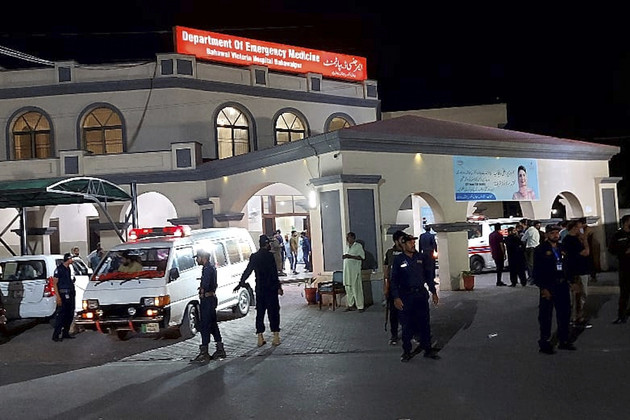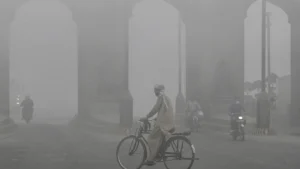Islamabad, May 8: Amid escalating tensions with India, Pakistan has activated an emergency response across public hospitals in Islamabad and Rawalpindi, placing the healthcare system and electricity infrastructure on high alert.
The emergency move aims to safeguard public health and ensure uninterrupted services during this critical time.
In Islamabad, the Ministry of Health has suspended all staff leaves indefinitely.
READ MORE: Metro Bus Service Suspended in Twin Cities
Doctors, nurses, and support staff have been directed to report for duty immediately, with hospitals instructed to maintain full readiness for any potential medical crises.
Health Minister Dr. Mustafa Kamal has also canceled his scheduled diplomatic visits to Geneva and Qatar, underscoring the gravity of the national situation.
“My focus is now entirely on managing the domestic emergency and protecting the health of our citizens,” he stated. A 24/7 emergency response center has been launched at the federal health complex to monitor developments and coordinate nationwide efforts.
This health command center will maintain continuous communication with district and provincial health authorities, ensuring a cohesive response.
All provincial health secretaries have been advised to review and update their emergency plans as the security landscape evolves.
Read More: Pakistan Shoot Downs 25 Israeli Harop Drones sent by India
In Rawalpindi, the situation is equally tense.
The Rawalpindi Medical University (RMU) has declared a full-scale health emergency across key hospitals including Holy Family, Benazir Bhutto, and Rawalpindi Teaching Hospital.
This follows recent cross-border incidents that reportedly claimed nearly two dozen civilian lives.
RMU Vice Chancellor Prof. Dr. Muhammad Umer convened an emergency strategy meeting with hospital heads.
Speaking to media, he confirmed that leave cancellations are in effect and lifesaving medicines are in stock. “Our doctors are fully prepared to serve on the frontlines, even in high-risk zones near the border,” he said.
Hospitals have enhanced blood bank supplies, increased emergency bed allocations, and reinforced readiness for injuries caused by bullets, burns, and shrapnel. Emergency liaisons have been assigned to coordinate with Civil Defence and Rescue 1122.
In a parallel move, the Islamabad Electric Supply Company (Iesco) has initiated emergency protocols to guarantee uninterrupted power in Islamabad and Azad Jammu and Kashmir (AJK).
CEO Muhammad Naeem Jan confirmed that 132kV grid stations are now under 24-hour surveillance, with all operational teams on standby. “Our construction and repair teams are directed to respond instantly to any faults or sabotage attempts,” he said.
Emergency alert amid India tensions has now become a nationwide priority, with both medical and power sectors working in tandem to prevent breakdowns in essential services.









